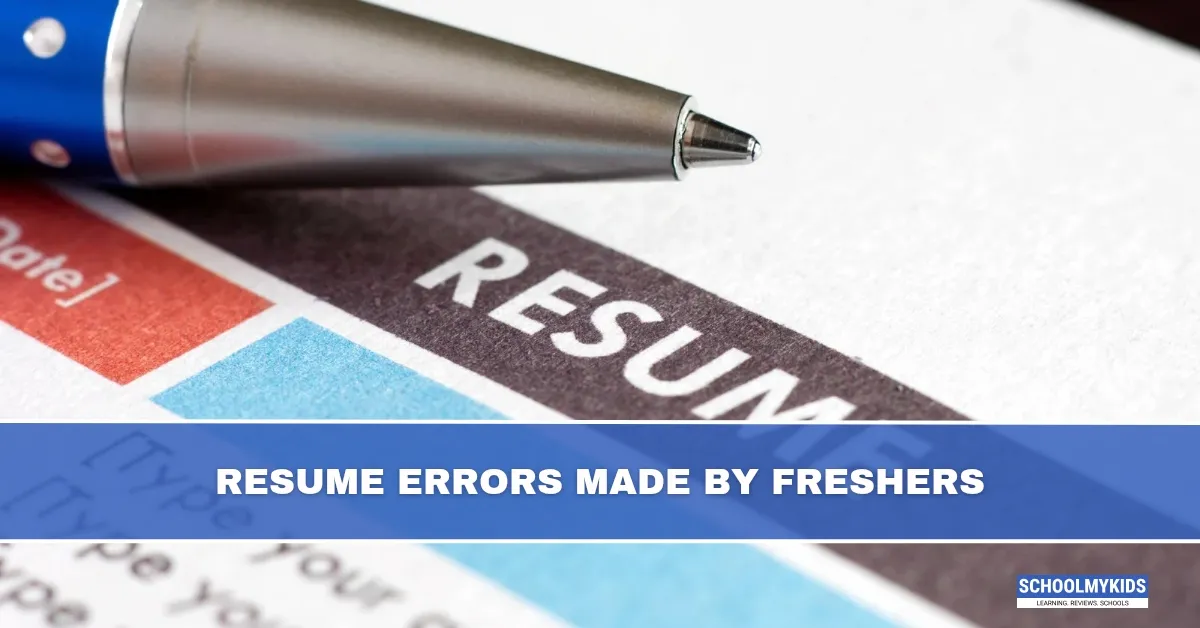Fresh graduates often struggle with crafting effective resumes due to inexperience and common misconceptions about what employers want to see. Here are the most frequent mistakes and practical solutions:
Major Resume Errors by Freshers
1. Generic, One-Size-Fits-All Resumes
Error: Using the same resume for every job application
Impact: Fails to grab recruiter attention; shows lack of genuine interest
How to Improve:
- Customize your resume for each position
- Use keywords from the job description
- Highlight relevant coursework and projects that match the role
- Adjust your objective/summary to align with company needs
2. Weak or Missing Professional Summary
Error: Using vague objectives like "Seeking a challenging position to grow"
Impact: Wastes prime real estate; doesn't communicate value
How to Improve:
- Write a 2-3 line summary highlighting your strongest skills
- Include specific achievements or relevant projects
- Example: "Recent Computer Science graduate with expertise in Python and machine learning. Developed 3 web applications during internship, improving user engagement by 25%"
3. Poor Formatting and Design
Error: Cluttered layouts, inconsistent fonts, or overly creative designs
Impact: Difficult to read; may not pass ATS (Applicant Tracking Systems)
How to Improve:
- Use clean, professional templates
- Maintain consistent formatting throughout
- Use standard fonts (Arial, Calibri, Times New Roman)
- Keep margins between 0.5-1 inch
- Save as PDF to preserve formatting
4. Lack of Quantifiable Achievements
Error: Listing job duties instead of accomplishments
Impact: Doesn't demonstrate impact or results
How to Improve:
- Use numbers, percentages, and metrics wherever possible
- Transform "Managed social media accounts" to "Managed 5 social media accounts, increasing follower engagement by 40%"
- Include academic achievements: GPA (if above 3.5), class rank, honors
5. Irrelevant Information Overload
Error: Including personal details, hobbies unrelated to the job, or every college project
Impact: Dilutes focus from relevant qualifications
How to Improve:
- Remove personal information (age, marital status, photo unless required)
- Include only hobbies that demonstrate relevant skills
- Focus on 2-3 most relevant projects with detailed descriptions
- Prioritize recent and relevant experiences
6. Grammar and Spelling Mistakes
Error: Typos, grammatical errors, and inconsistent tenses
Impact: Shows lack of attention to detail; immediate rejection risk
How to Improve:
- Proofread multiple times
- Use grammar-checking tools (Grammarly, Hemingway Editor)
- Have friends or career counselors review your resume
- Read aloud to catch awkward phrasing
- Maintain consistent verb tenses (past tense for completed work)
7. Inadequate Skills Section
Error: Listing basic skills or rating skills with bars/percentages
Impact: Doesn't differentiate you from other candidates
How to Improve:
- List specific technical skills relevant to the job
- Group skills by category (Programming Languages, Tools, Frameworks)
- Avoid rating systems - employers prefer to assess skills themselves
- Include both hard and soft skills with context
8. Missing or Weak Education Section
Error: Only listing degree name and university
Impact: Misses opportunities to showcase academic achievements
How to Improve:
- Include relevant coursework for your target field
- Add academic projects with brief descriptions
- List honors, scholarships, or dean's list recognition
- Include thesis topic if relevant to the position
Additional Improvement Strategies
Leverage Internships and Projects
- Treat internships as professional experience
- Detail specific technologies used and problems solved
- Include personal projects that demonstrate initiative
Use Action-Oriented Language
- Start bullet points with strong action verbs
- Examples: "Developed," "Implemented," "Analyzed," "Collaborated," "Optimized"
- Avoid weak phrases like "Responsible for" or "Worked on"
Optimize for ATS
- Use standard section headings (Experience, Education, Skills)
- Include keywords from job descriptions naturally
- Avoid images, graphics, or complex formatting
- Use common job titles and industry terminology
Keep It Concise
- Limit to 1-2 pages maximum for fresh graduates
- Use bullet points instead of paragraphs
- Prioritize most relevant information at the top









Be the first one to comment on this story.